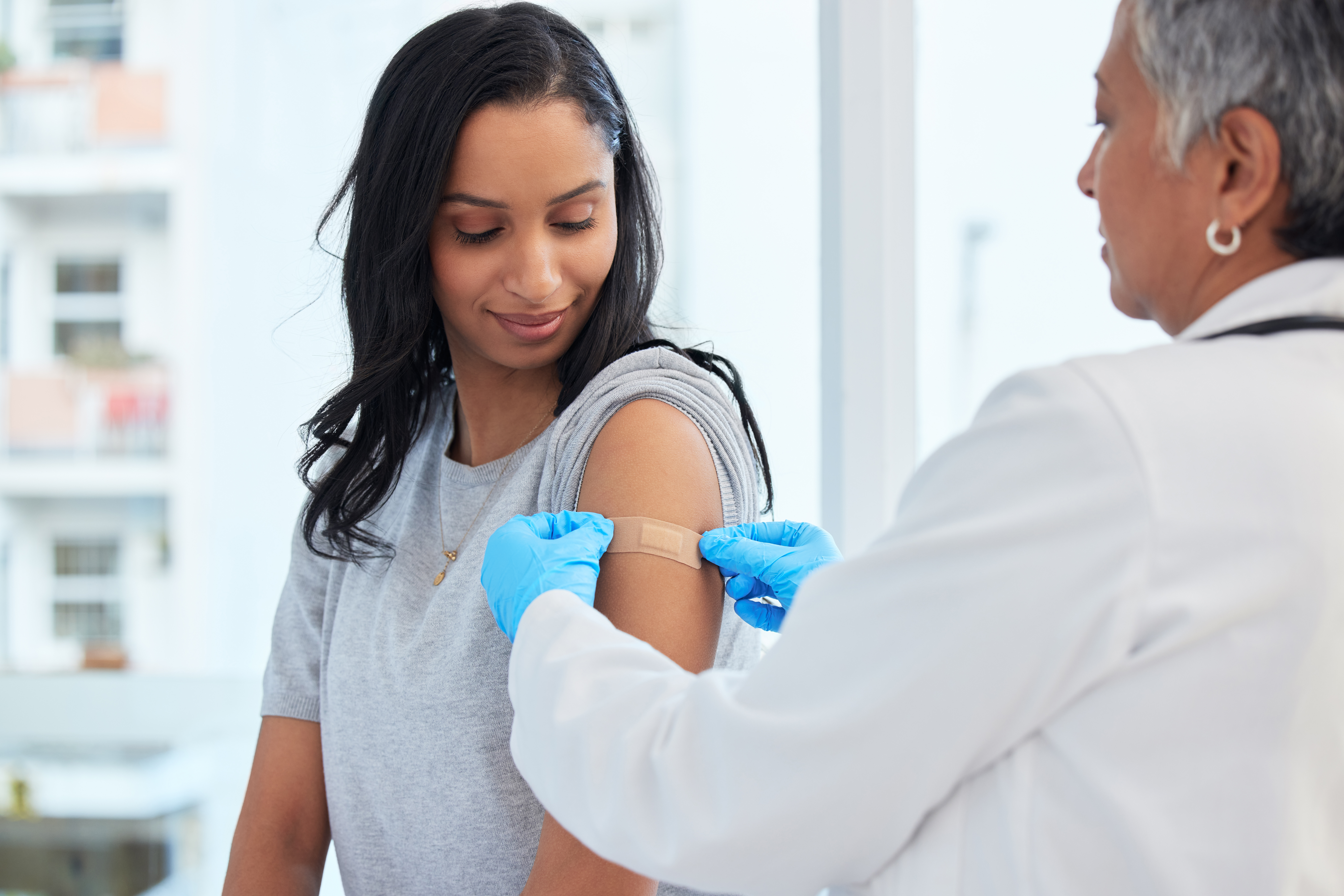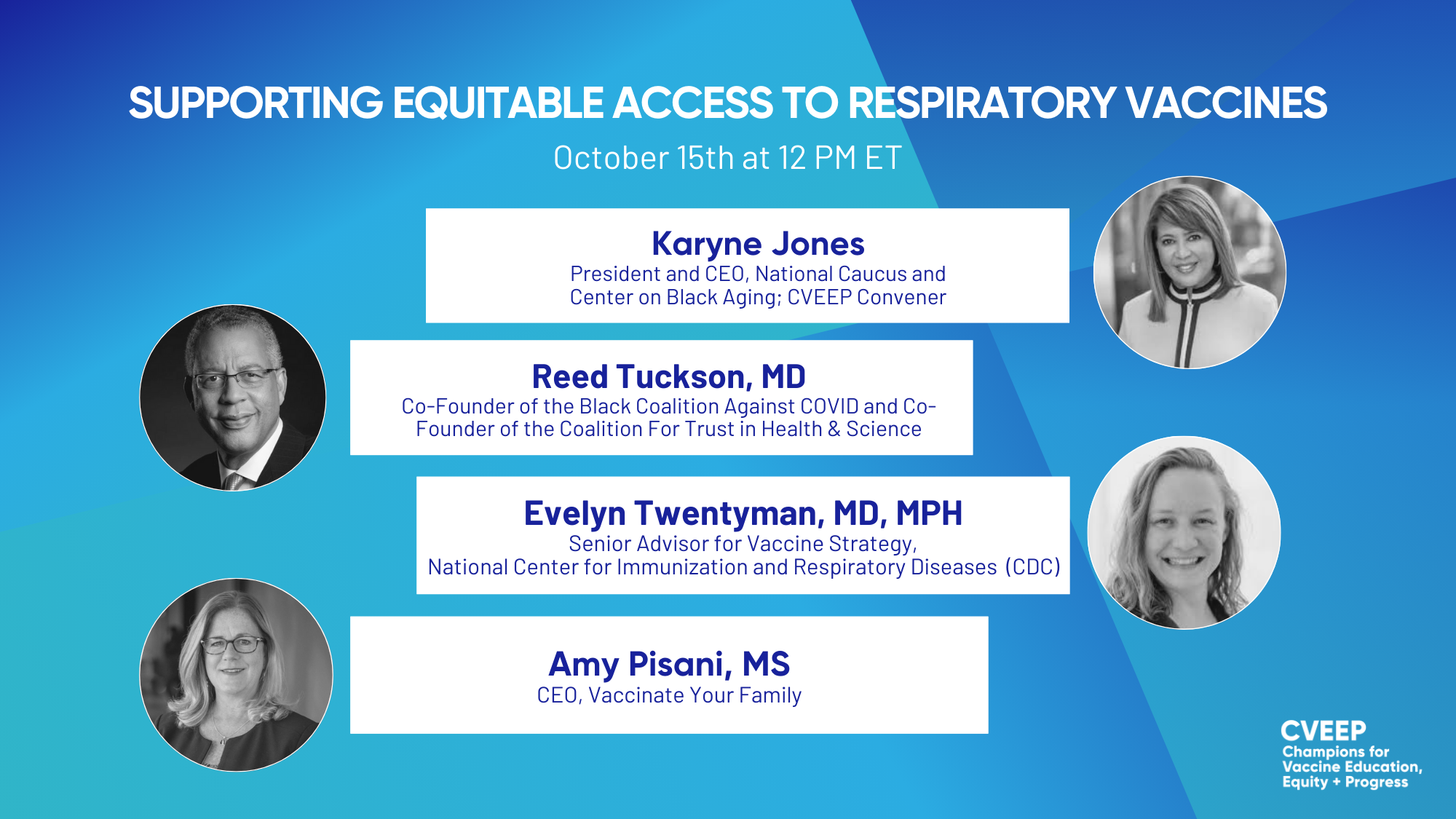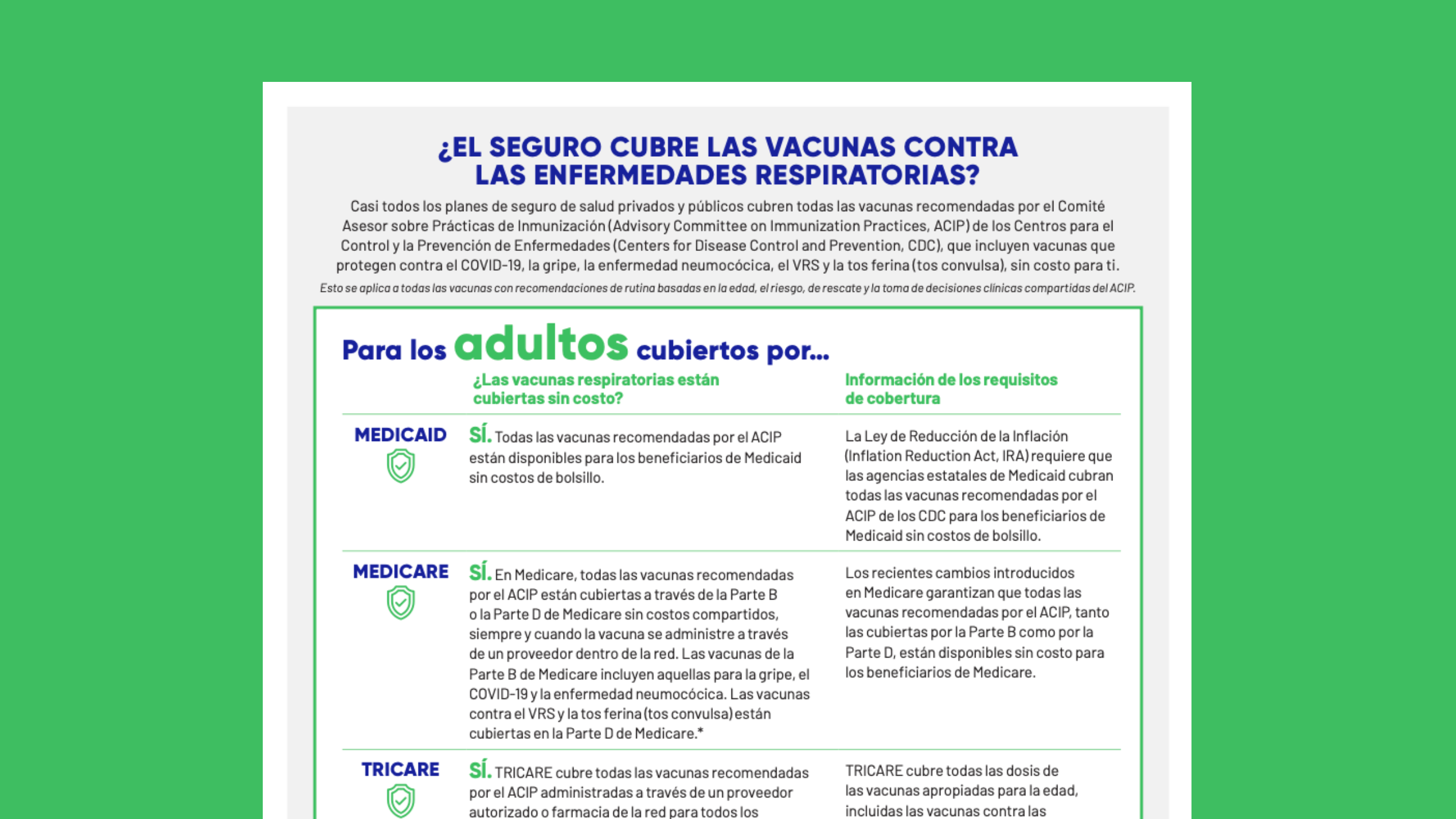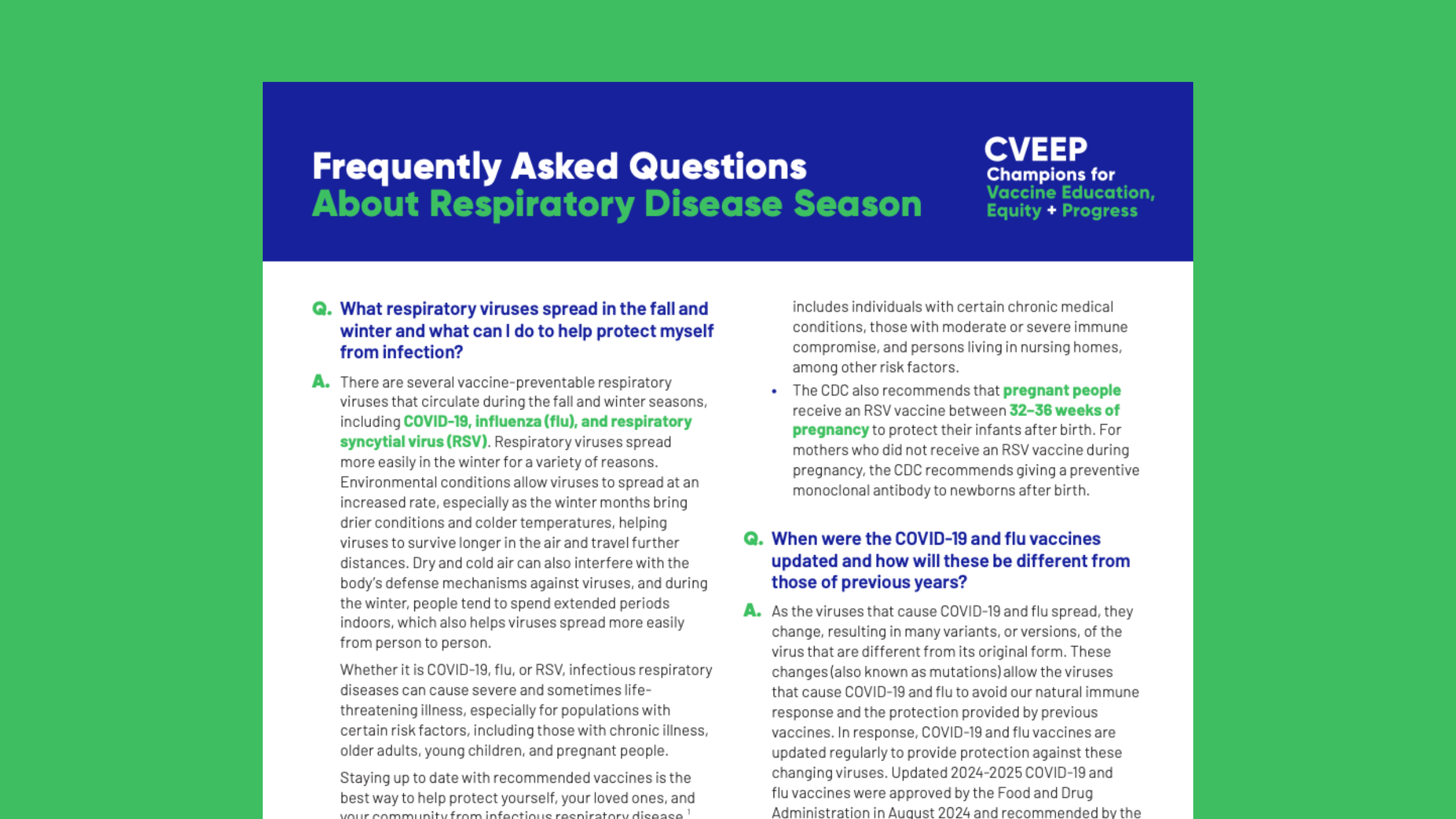Infectious Respiratory Diseases
Infectious respiratory diseases pose a risk to our health.
These infectious respiratory diseases are spread from person to person and can cause severe infections, worsen pre-existing respiratory conditions, and lead to short and long-term side effects — and nearly everyone is at risk. The Centers for Disease Control and Prevention (CDC) recommends different vaccines to provide protection, build our defenses, and limit the severity, spread, and widespread threat of infectious respiratory disease.
Infectious Respiratory Diseases
Vaccines
Staying up to date with recommended vaccines is the best way to help avoid severe illness, hospitalization, and death.

New CVEEP Survey: Pandemic Preparedness and Public Understanding of Vaccine Science
Treatments
Learn more about available treatment options and the benefits they offer.

Latest Resources

Supporting Equitable Access to Respiratory Vaccines: Best Practices and Implementation of Risk-Based Recommendations
Watch CVEEP’s conversations with experts on best practices and implementation of risk-based respiratory vaccine recommendations.

¿El Seguro Cubre las Vacunas Contra las Enfermedades Respiratorias?
Read more